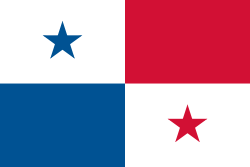 On September 26, the plenary of the National Assembly approved on third debate the Bill No. 510 on Copyright and Related Rights.
On September 26, the plenary of the National Assembly approved on third debate the Bill No. 510 on Copyright and Related Rights.
During the debate, Rep. Jose Blandon claimed that the text was not sufficiently disclosed or accessed. Despite the questions that the Bill in the Assembly, in the second debate the document received almost unanimous support from all benches. Only Leandro Avila PRD abstained.
The president of the Panamanian Society of Authors and Composers (SPAC), Cristian Garcia, said the law “has good things”, and some that need improvement. He expressed concern about “the power acquired by the Directorate of Copyrights” on the matter. Amable Marin Moreno, artistic manager, said the national musicians “are broken”, because there is no protection of their rights. He added that the law “is welcome” as long as it fully complies.
Last Thursday, local artists expressed its rejection of new prerogatives of the Ministry of Commerce on the subject. Sectors linked to music, audiovisual production and civil society questioned the lack of consultation and it was soon adopted the law and demand that is vetoed by President Ricardo Martinelli.
Law 510 gives the power to dispense sentences and fines ranging from $ 1,000 to $100,000 at the sole discretion of the DGDA agents. The DGDA has the power to track the movements of individuals who surf the Internet with the pretext of fighting piracy.
Specific concerns
D3M: http://d3mrecords.blogspot.com/2012/09/panama-aprueba-ley-sobre-derechos-de.html
D3M is a company dedicated to, among other activities, marketing of phonograms, video and other content via the Internet, mobile phones or any other cell type and method of use through digital networks.
The initiative, described in some blogs as the “worst copyright law in the history” of Panama establishes severe restrictions. For example, attribute a copyright status for temporary electronic files and does not allow possession by third person, as the law does not consider them ‘temporary’ or ‘accidental’. This also means that users who pay for content through services like Netflix or Pandora can be prosecuted or fined simply for having copyrighted material on their computers. The money raised from fines goes directly to the Directorate General of Copyrights and is intended Panama “to improve its operational infrastructure and boost performance of its officials” that can reach each commission-on each fine passed-as much as 50% of your monthly salary.
Educators Association the Educators Association Veragüenses (AEVE), one of the most important educational organizations in the country: Asociación de Educadores Veragüenses (AEVE)
The Educators Association Veragüenses (AEVE), one of the most important educational organizations in the country said in a statement last Thursday that this Law “Seriously affects the rule of law and freedom of Panamanian citizens.”. With this law, “if you’re accused of infringement or intellectual property crime the DGDA, under the Ministry of Commerce, will acknowledge you, judge you and collect the fine (the it is judge and the jury),” complained organization.
Alex Neuman y Alessio Gronchi (IT consultant and broadcasting representative). http://www.youtube.com/watch?v=l-MMy7n2NQk&feature=youtu.be
Draw attention to the following points:
- Amount of fines set by the law. They mention that in foreign similar legislations the amounts of the fines are set in regulations but the law which makes easier to change them if necessary.
- New law strengthens the dominant position of Collective administration entities by empowering them to fix fees of copyright. They say this could endanger small broadcasting organizations. On the other hand, criticize the fact that, if you do not agree with the rate established, the claim must be solved through a DGDA arbitral process but meanwhile, it must pay or deposit the fee set by the collective administration organization.
- Legal loopholes in relation to technology and Internet use. They claim that due to these gaps, everyday activities could be considered illegal; say for example the navigation on websites with content that violates the new law, since that fact alone would transform the person into diffuser and offending user. They hope that the regulation solutions these gaps.
Petition asking for Presidential Veto:
URL: http://www.laestrella.com.pa/online/impreso/2012/09/27/piden-veto-para-el-proyecto-510.asp
Composers, writers, and other artists asked the President of the Republic, Ricardo Martinelli not sanction Bill No 510 and specifically to veto Articles 151, 153 and 157 of the proposal approved by the National Assembly.
Petition addressed to President of the Republic of Panama: http://www.change.org/es/peticiones/presidente-de-la-rep%C3%BAblica-de-panam%C3%A1-no-sancione-el-proyecto-de-ley-510-2012-y-vetar-art%C3%ADculos-151-153-y-157#share
“We urge you do not enact Bill 510-2012 COPYRIGHT AND RELATED RIGHTS and go partially to amend articles 151, 153 and 157. We agree the law protects the copyright and intellectual property, but we believe that the Directorate General of Copyright should not exist as an authority responsible for regulating and enforcing this law because of the powers as judge and interested that the law gives to it. This Bill will allow DGDA to benefit of the work of the authors and serve as a tool of persecution and intimidation of any person who is suspected of copyright infringement.”




